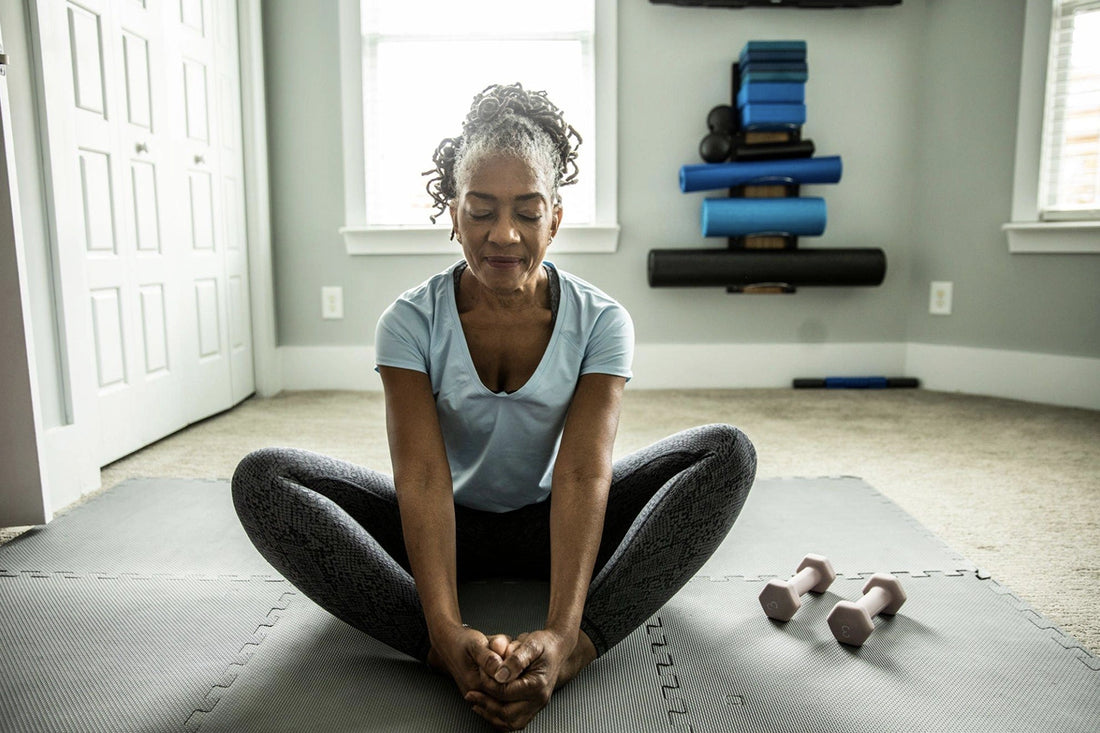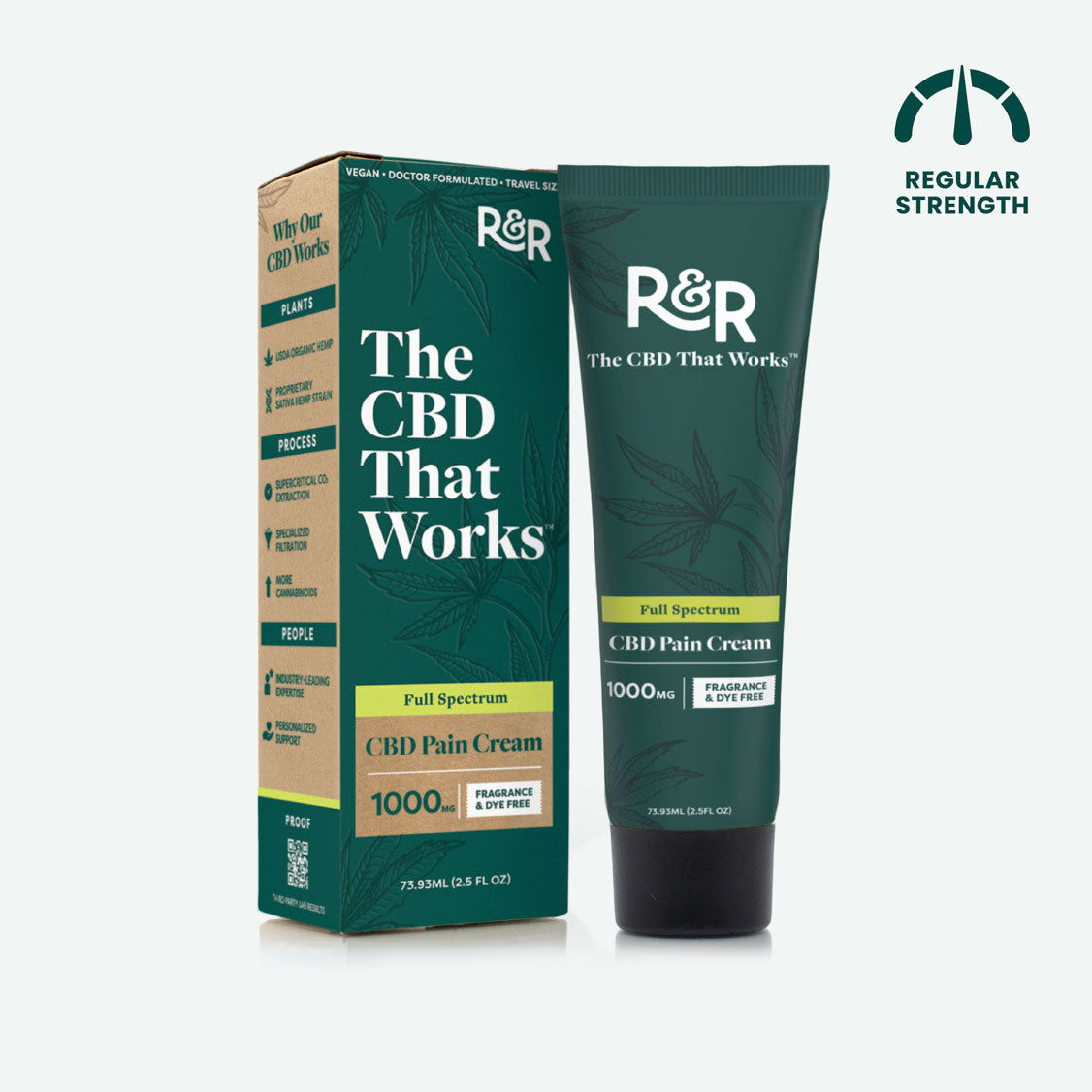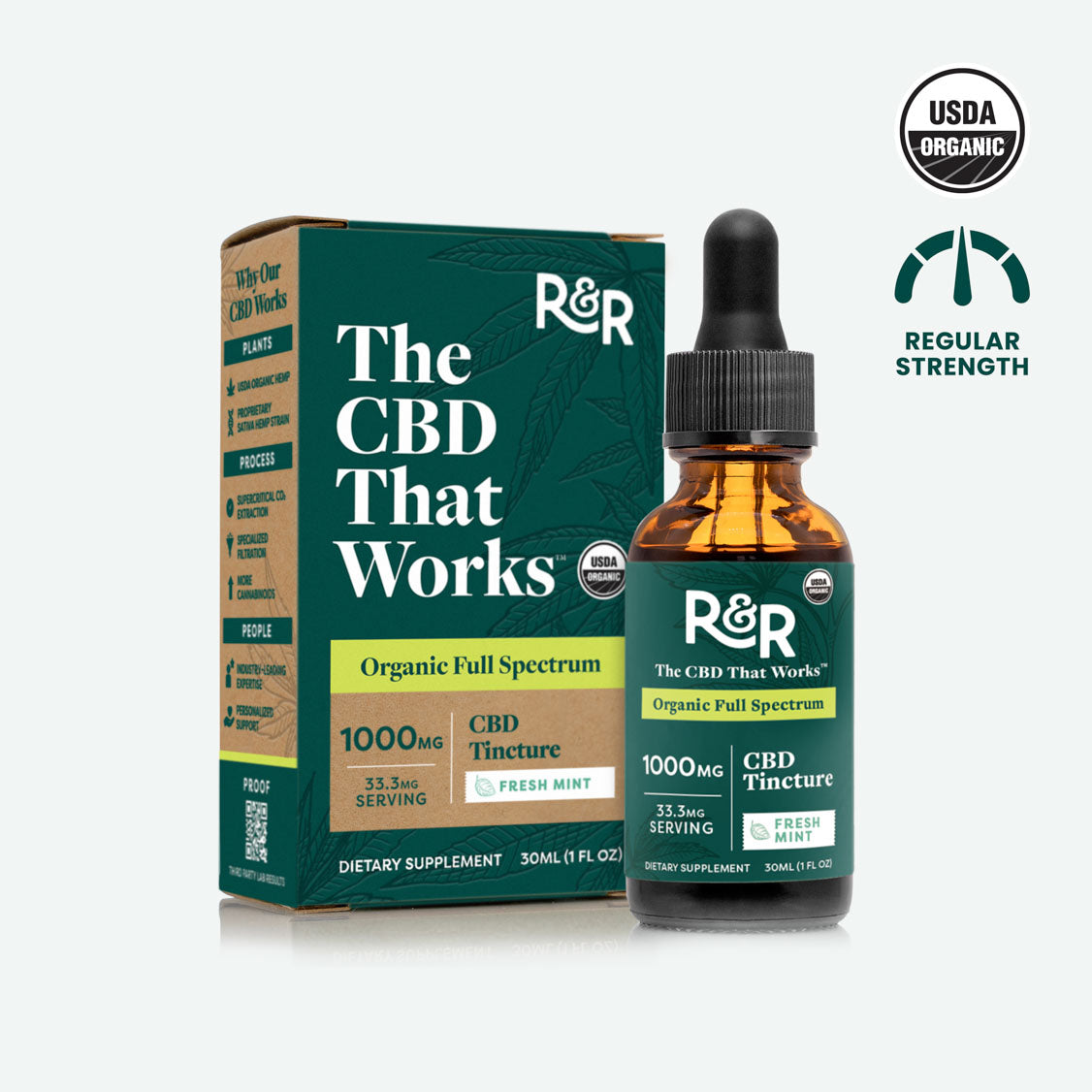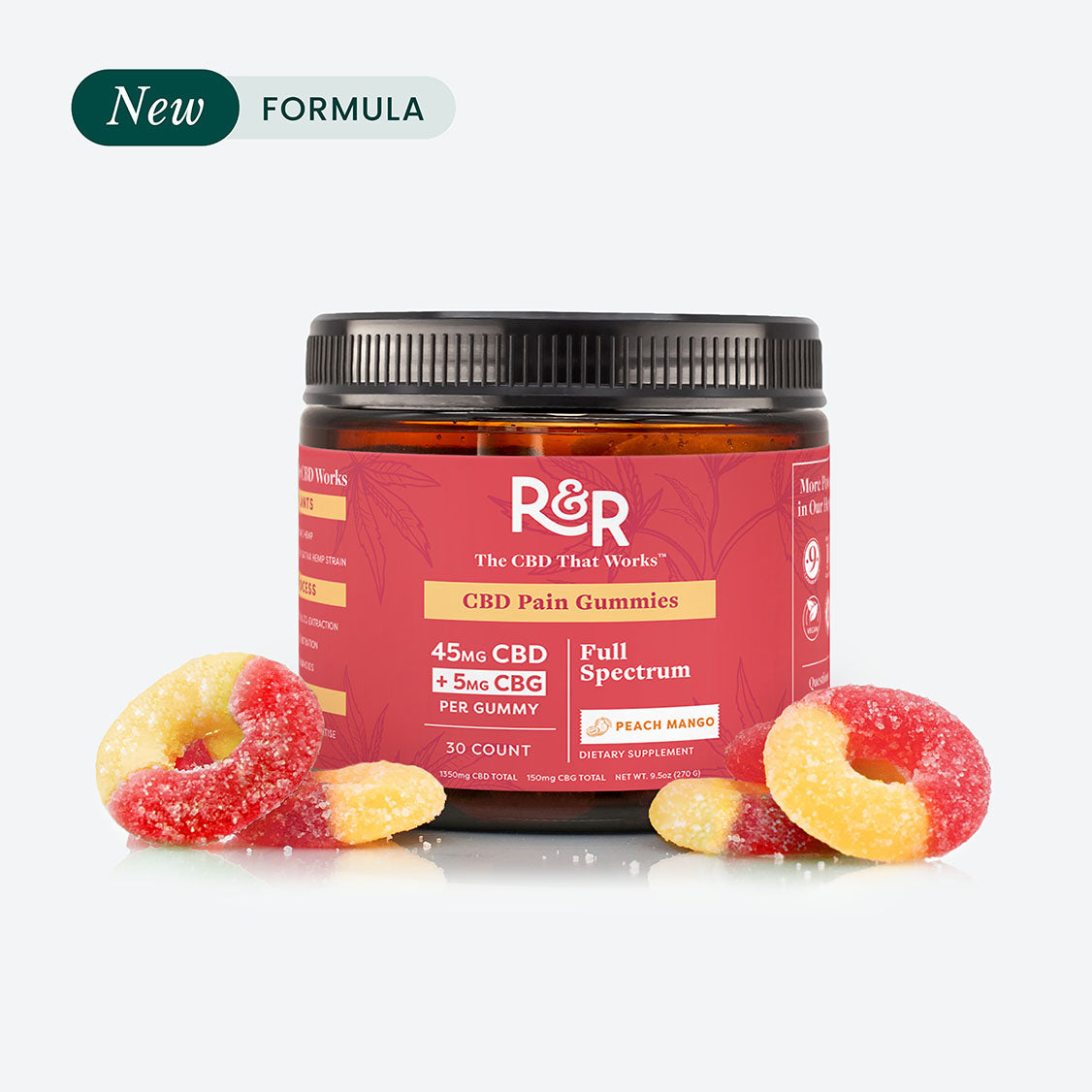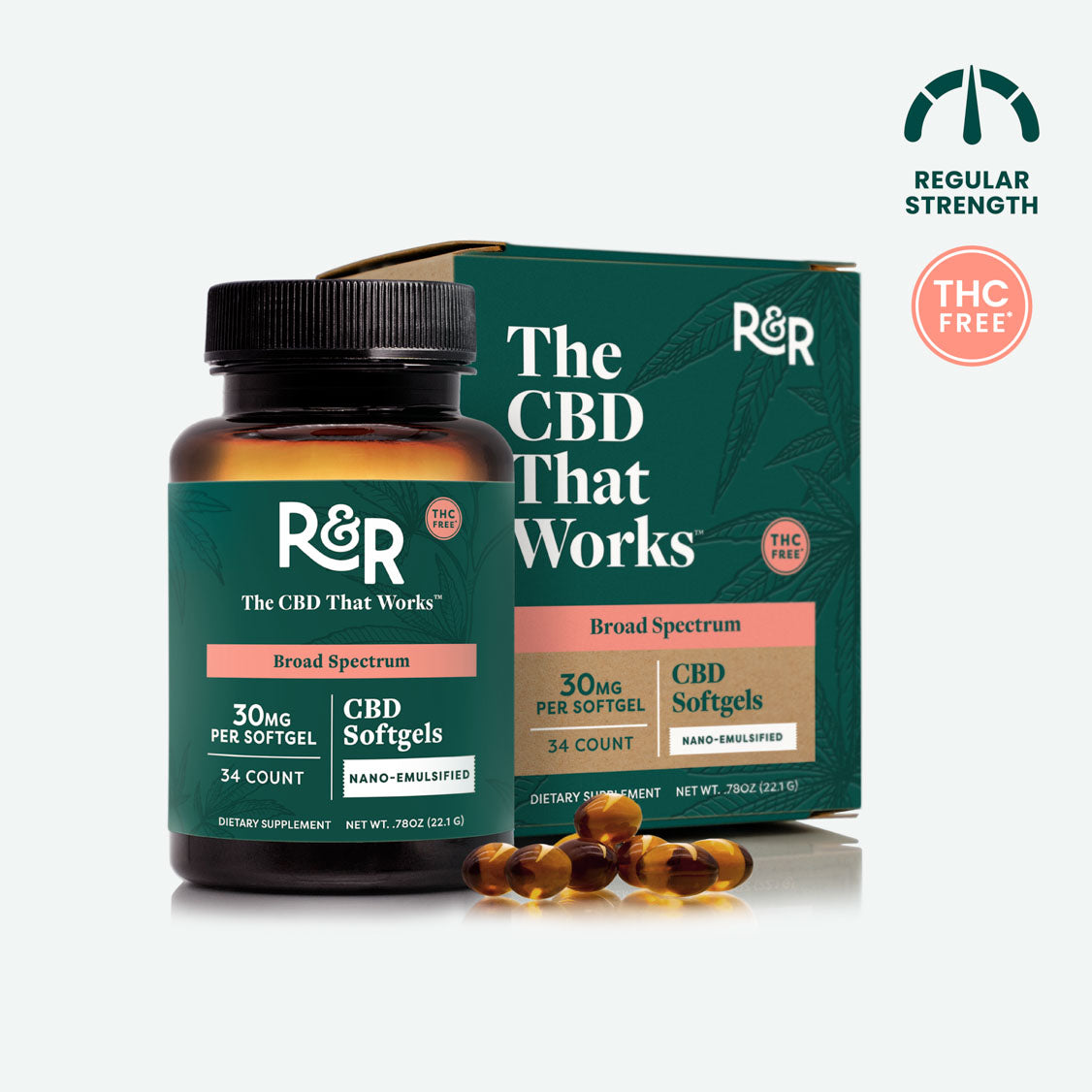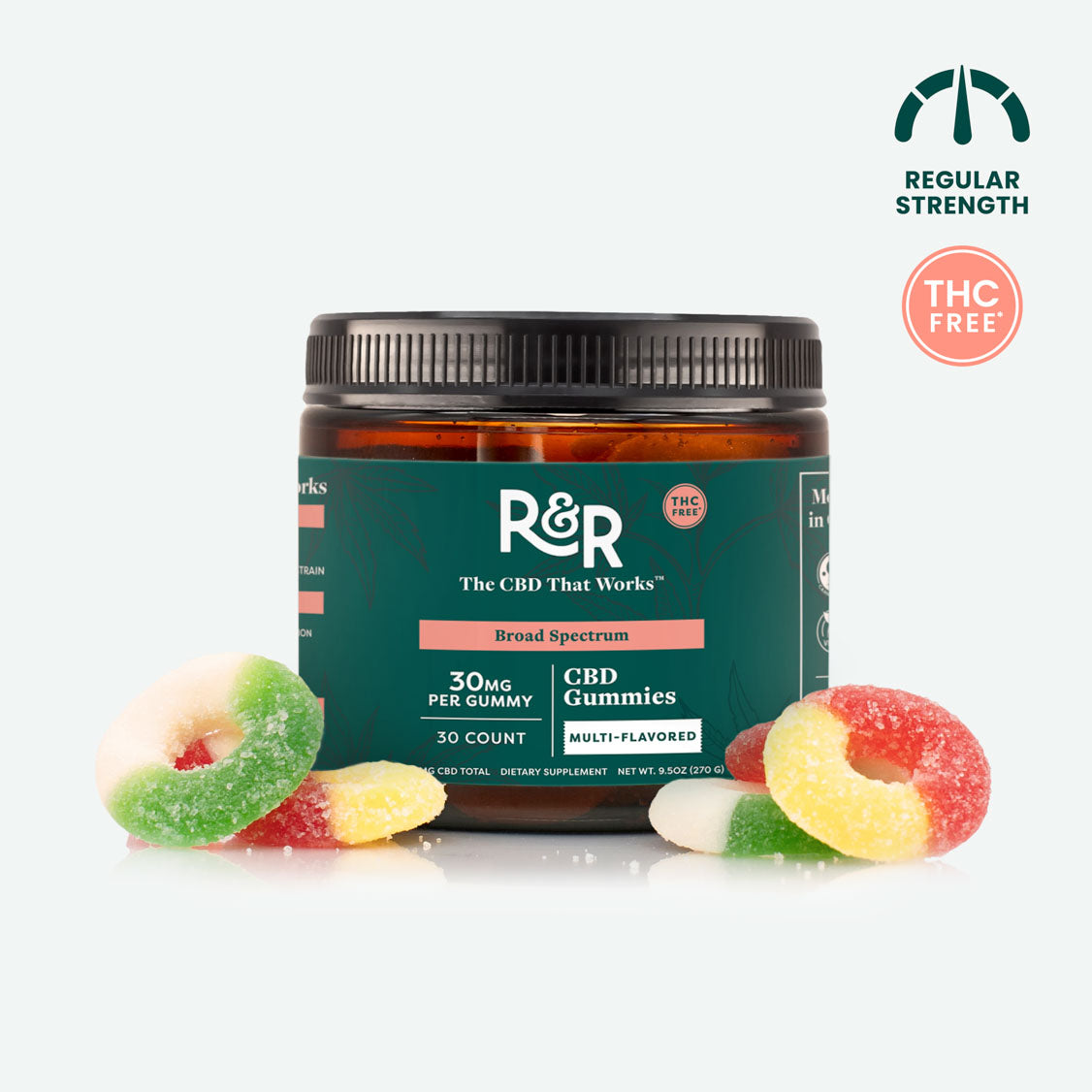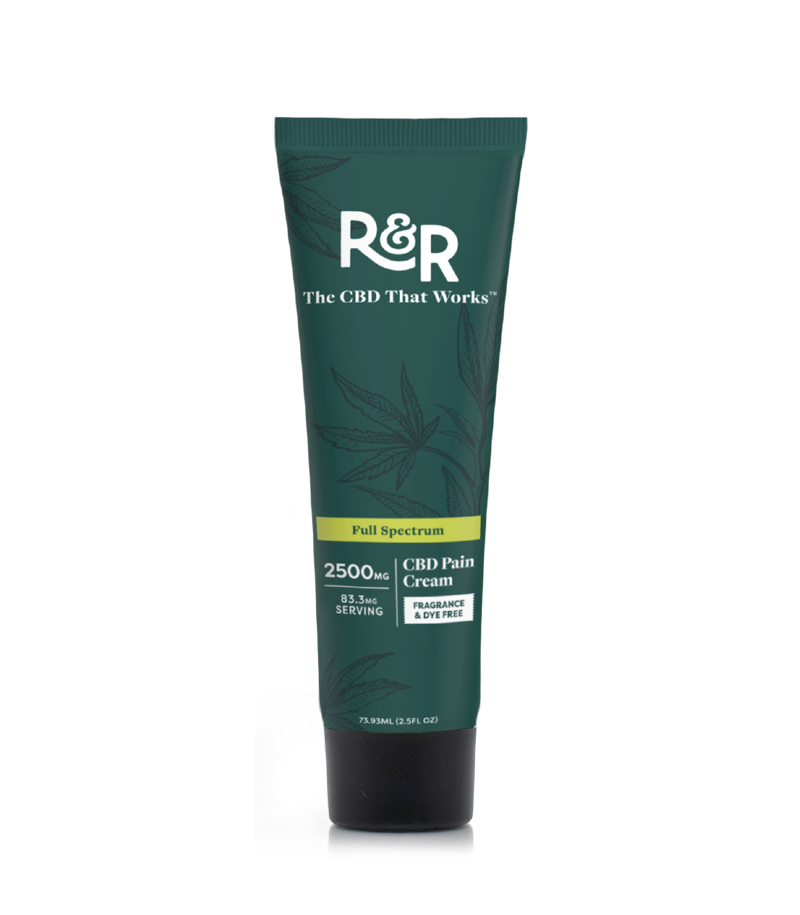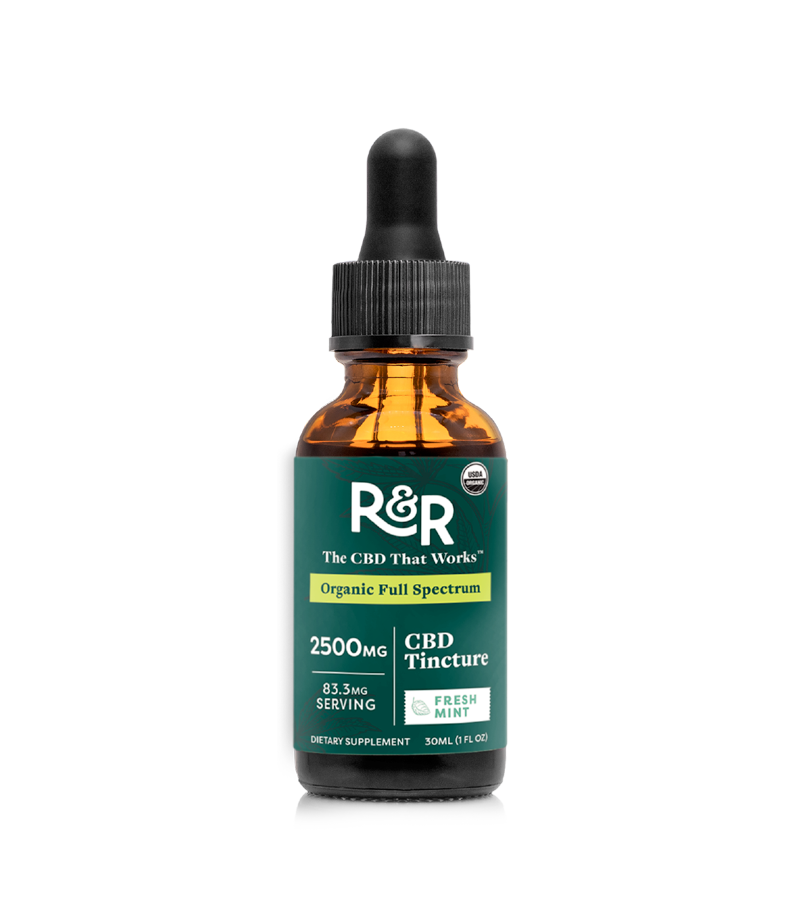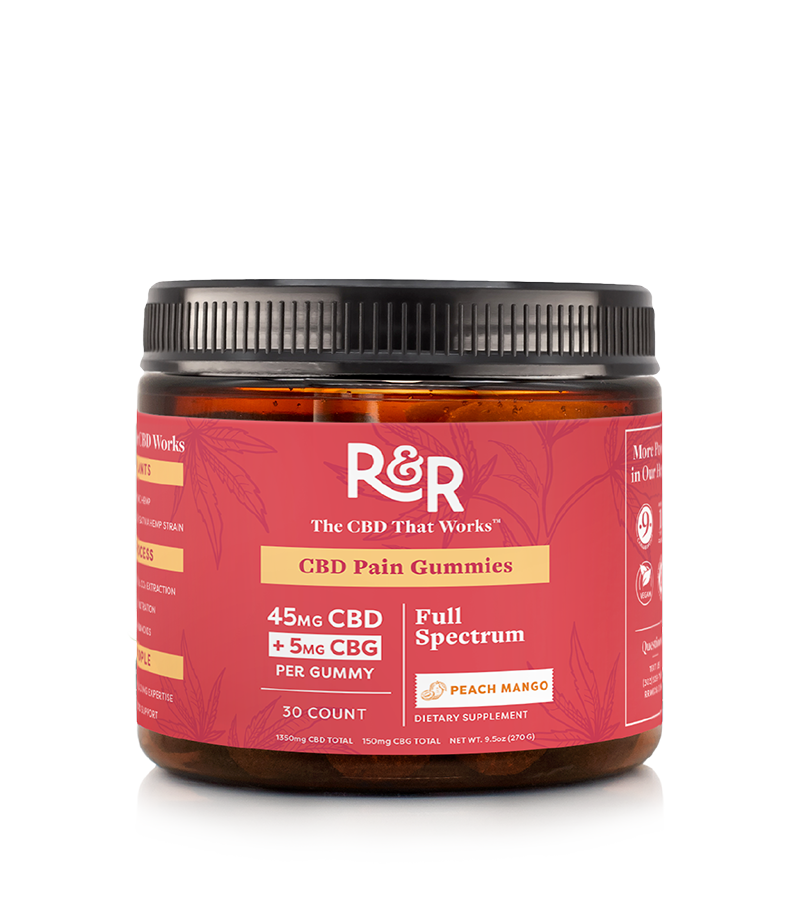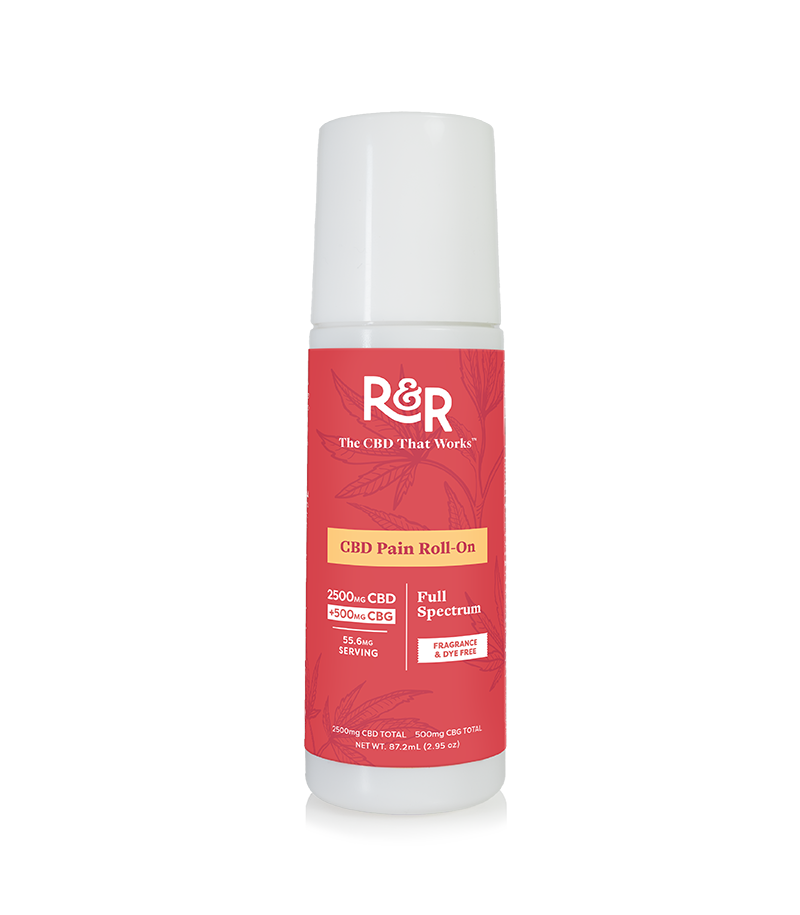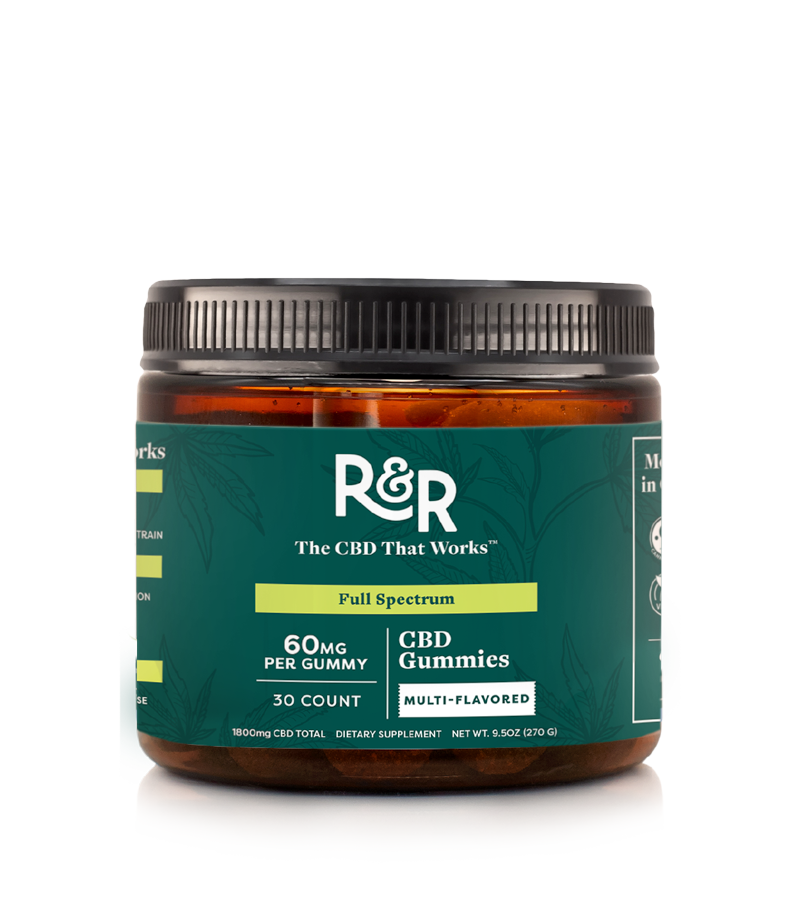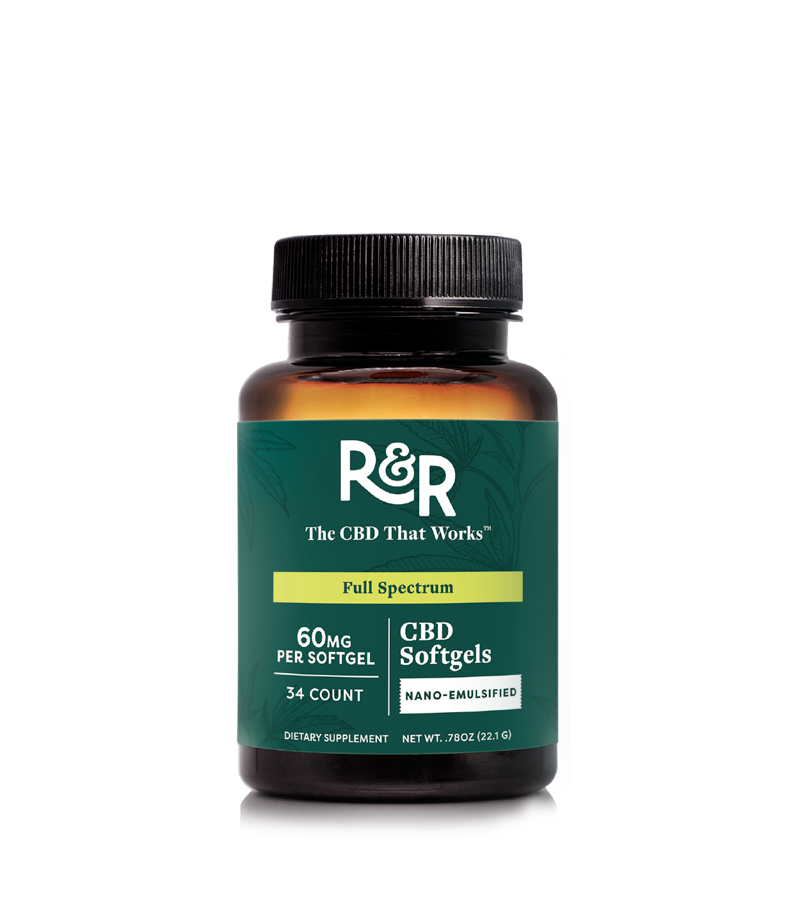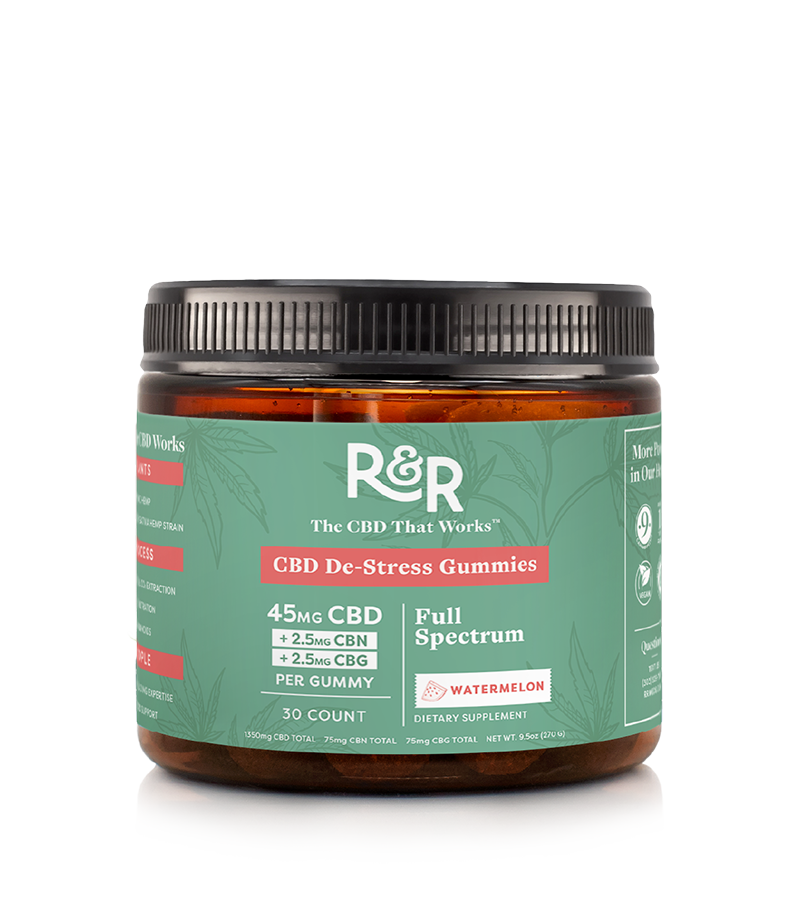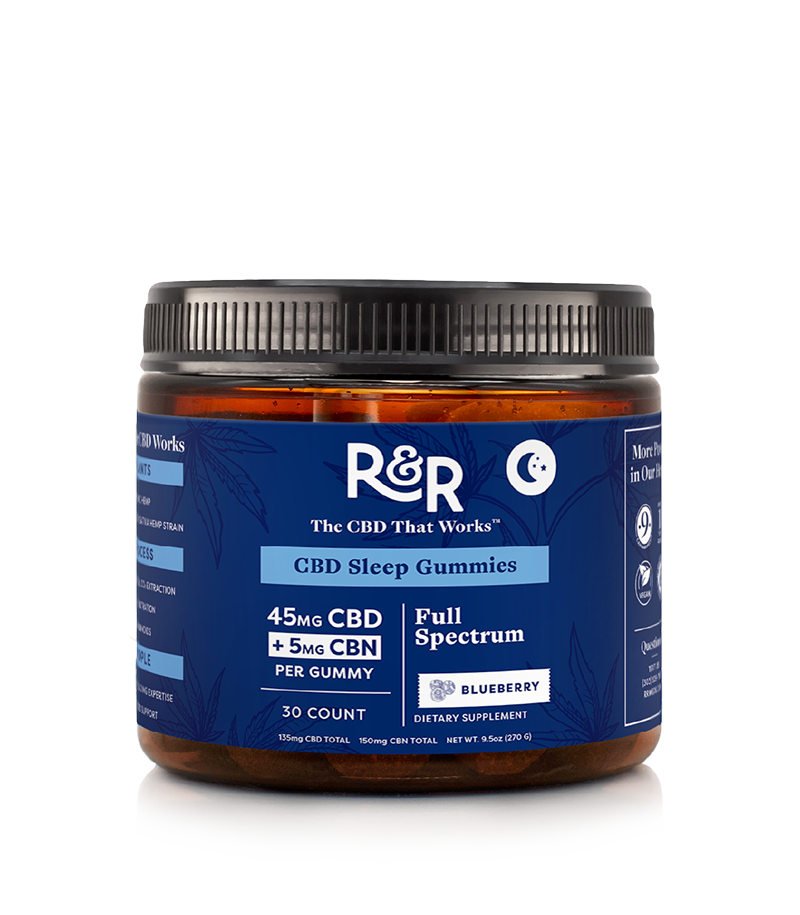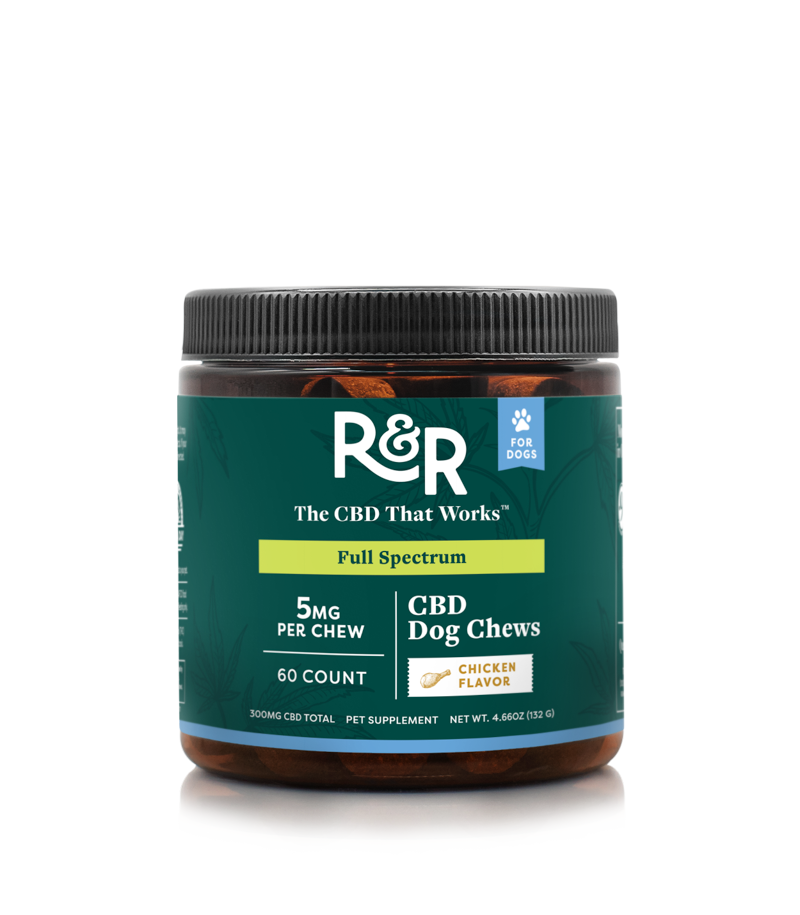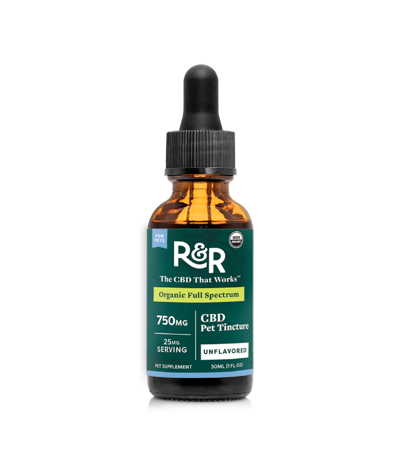CBD continues to gain attention for its potential to support muscle recovery. Many athletes and fitness enthusiasts now use this natural compound to support their post-workout routines.
Understanding how CBD works helps you make informed decisions about incorporating it into your fitness regimen. So, is CBD for muscle recovery a hit or a miss?
Key Takeaways
- CBD offers natural support for muscle recovery by potentially reducing inflammation, alleviating soreness, promoting relaxation, and enhancing sleep quality.
- R&R CBD offers CBD-based tinctures, pain creams, gummies, and softgels, to target pain relief, stress reduction, and sleep support.
- CBD is generally considered safe for athletes
- The World Anti-Doping Agency (WADA) removed CBD from the list of prohibited substances.
What Is CBD?
CBD (cannabidiol) is a naturally occurring compound found in hemp. Unlike its famous cousin THC, it doesn't produce a ‘high’ or psychoactive effect–but it does provide a host of other important therapeutic benefits.
Like all cannabinoids, CBD interacts naturally with the endocannabinoid system (ECS), a complex network of receptors that regulates various bodily functions and promotes balance and homeostasis.
This broadband interaction explains CBD’s emergence as a popular way to naturally manage pain and support recovery.
CBD vs THC
Although CBD and THC come from cannabis/hemp, the way they function in the body is different. THC is the compound responsible for producing psychoactive effects associated with marijuana use.
CBD, on the other hand, doesn't alter your mental state since it has a weak affinity for CB1 receptors within the ECS. This is, actually, the cannabinoid’s main selling point—that it offers so much therapeutically without intoxication.
Hemp-derived CBD products contain trace amounts of THC (less than 0.3%), making them legal in many places where marijuana is not. This low THC content means you can use CBD without experiencing unwanted psychoactive effects.
How Does CBD Help Muscle Recovery?
Intense exercise creates microscopic tears in muscle fibers, leading to inflammation and soreness. This is why your body becomes sore and painful 2-3 days after a strenuous activity. Luckily, CBD can help address this issue in several ways.
Reduces Inflammation
CBD exhibits potent anti-inflammatory properties that can help reduce exercise-induced inflammation. Indeed, research shows that CBD interacts with receptors in your immune system to decrease inflammatory responses, leading to faster recovery times and reduced muscle swelling after intense workouts.
Moreover, this unique cannabinoid has been shown to modulate various inflammatory pathways in the body. By targeting these pathways, CBD helps muscles recover faster from exercise-induced stress.
Alleviates Muscle Soreness
Delayed onset muscle soreness (DOMS) can significantly hinder your workout routine. The soreness is usually the result of the microscopic muscle tears caused by strenuous activity.
Because the body is self-healing, it induces inflammation to kick-start the healing process. CBD supports this process by interacting with pain receptors in your body. Its analgesic (pain-killing) properties help reduce pain perception, making post-workout soreness more manageable.
Promotes Relaxation
CBD's calming effects can help you relax post-workout. This relaxation can contribute to faster recovery by reducing muscle tension and promoting better blood flow to recovering tissues. When your muscles are relaxed, they're better able to repair and grow.
Supports Sleep Quality
Quality sleep is a cornerstone of effective muscle recovery. CBD may improve sleep quality by addressing factors that often disrupt rest, such as anxiety or pain. Better sleep can improve muscle repair and growth, as your body performs many of its recovery processes during deep sleep stages.
CBD vs Traditional Muscle Recovery Methods
When it comes to muscle recovery, here’s how CBD compares with some traditional methods.
NSAIDs (Ibuprofen)
Non-steroidal anti-inflammatory drugs (NSAIDs) like ibuprofen are common go-to options for managing post-workout pain and inflammation. While effective for short-term relief, long-term use of NSAIDs can lead to side effects like stomach ulcers and increased risk of heart problems.
CBD is a natural alternative with fewer side effects. Unlike NSAIDs, which work by blocking certain enzymes in the body, CBD interacts with the ECS to modulate pain and inflammation responses.
That’s why CBD Pain Creams can provide targeted relief without the systemic effects of oral NSAIDs. You can apply these topicals directly to sore muscles to reduce the risk of gastrointestinal issues associated with oral anti-inflammatory medications.*
Ice Baths
Cold therapy, particularly ice baths, has long been a staple in athletes' recovery routines. The cold constricts blood vessels, reducing inflammation and numbing pain. However, there’s a chance that ice baths might impair muscle growth and adaptation to training.
CBD doesn't have this potential drawback; instead, it helps reduce inflammation and pain without interfering with your body's natural adaptation processes. You can use CBD alongside other recovery methods, including modified cold therapy techniques, for a holistic approach to muscle recovery.
Massage
Massage therapy is an effective way to promote muscle recovery by increasing blood flow and reducing tension. However, if done by a professional, it can be time-consuming and expensive.
CBD can be an excellent complement to massage therapy. You can massage pain relief products containing CBD into sore muscles, combining the benefits of manual manipulation with CBD's anti-inflammatory and pain-killing effects.
The good news is you can easily incorporate CBD into your home self-massage routine. Apply this CBD Pain Cream to affected areas and gently work it into the muscles as you target specific areas of discomfort to enhance your recovery.

How to Use CBD for Muscle Recovery
You can incorporate CBD into your post-workout routine in several ways. The method you choose depends on your preferences and recovery needs.
CBD Topicals
CBD-infused creams, balms, and roll-ons offer targeted relief for sore muscles and joints. Apply these products directly to the affected areas for localized support. Massage the topical into your skin, focusing on areas of discomfort or tension. This method allows quick absorption and fast-acting relief.
Topicals can be particularly effective for athletes dealing with specific problem areas. You can apply them before or after workouts or throughout the day. Users find that combining topical applications with other CBD products enhances their overall recovery experience.
CBD Tinctures
Multifunctional CBD Tinctures offer a versatile way to incorporate CBD into your recovery regimen. Place a few drops under your tongue and hold for 30-60 seconds before swallowing. This sublingual method allows quick absorption into the bloodstream, providing systemic relief.
Tinctures can be easily adjusted to find your ideal dosage. Start with a low dose and gradually increase until you achieve the desired effects. You can take tinctures daily as part of your wellness routine or use them specifically after intense workouts.
CBD Edibles
For long-lasting effects, consider our CBD+CBG Pain Gummies or Multifunctional CBD Softgels. These options provide a convenient and discreet way to consume CBD, especially if you don't enjoy the taste of tinctures or prefer a pre-measured dose.
Edibles often require more time to take effect as they must pass through the digestive system, but their effects typically last several hours. This makes them suitable for ongoing recovery support or promoting restful sleep at night.
When using edibles, be mindful of the dosage and give them time to take effect before consuming more. The onset can take 30 minutes to 2 hours, depending on factors like your metabolism, when you last ate, or your tolerance!
Best CBD Products for Muscle Recovery
When selecting CBD products for muscle recovery, opt for formulations designed to support post-workout healing. These products offer unique benefits to address muscle soreness and inflammation.
Full-Spectrum CBD Oil
Full-spectrum CBD oil contains many cannabinoids and terpenes that work together to enhance the overall effects. This ‘entourage effect’ can also improve muscle recovery.
Look for high-potency tinctures with CBG, CBN, and other beneficial compounds. These additional cannabinoids may offer extra anti-inflammatory and pain-relieving properties.
If you are worried about THC content, THC-free products like these Multifunctional THC-Free CBD Softgels are alternative options that deliver the benefits of CBD for muscle recovery. These products allow you to harness CBD’s healing power while avoiding THC.
Cooling CBD Topicals
Topical CBD products offer targeted relief for sore muscles and joints. Cooling formulas that combine CBD with ingredients like menthol or arnica provide an immediate soothing sensation while delivering CBD's anti-inflammatory benefits to the affected area.
Applying topicals like our CBD Pain Roll On immediately after your workout may help reduce inflammation and discomfort. You can also use them before bed to support overnight muscle recovery and relaxation.*
CBD Recovery Gummies
CBD gummies formulated for recovery often include other ingredients to support muscle healing. Look for options that contain turmeric, ginger, or other natural anti-inflammatory compounds. These ingredients ‘synergize’ with CBD to enhance its recovery-promoting effects.
Gummies are a convenient and tasty way to incorporate CBD into your post-workout routine. They're easy to take to the gym or keep in your bag for quick dosing after training.
For a holistic approach to muscle recovery, use our full-spectrum Multifunctional CBD Gummies, which contain other cannabinoids like CBC, Delta 9, and CBG to compound the overall effect. These Gummies are ideal for addressing both localized discomfort and overall bodily inflammation.*
Is CBD Safe for Athletes?
CBD is generally well-tolerated by most people, with minimal side effects reported. Though rare, the common side effects include dry mouth, drowsiness, or changes in appetite. These effects are typically mild and subside with time.
For athletes subject to drug testing, using THC-free products helps you avoid the risk of failed drug tests. These products contain pure CBD isolate or broad-spectrum CBD only. This ensures you don’t have to worry about exposing yourself to THC.
Moreover, the World Anti-Doping Agency (WADA) removed CBD from its list of prohibited substances in 2018, recognizing its therapeutic value for athletes.
Another major benefit to note about CBD is its potential to reduce reliance on opioid medications for pain management—an issue of particular relevance to athletes. Opioids can have serious side effects, so it’s advisable to avoid them if you can.
While CBD shows promise for athletic recovery, it's a good idea to consult a healthcare professional before adding it to your routine. They can provide personalized advice based on your health needs and possible interactions with medications you may be taking.
When selecting CBD products, look for those that are third-party lab-tested. These tests verify the product's CBD content and ensure it's free from contaminants like pesticides or heavy metals.
We recommend starting with a low dose of CBD, which you can gradually increase until you find the amount that works for you. This approach allows you to gauge how your body responds before taking larger doses.
R&R CBD offers high-quality CBD products to support muscle recovery, reduce inflammation, and alleviate soreness. If you’re looking for effective, natural solutions to enhance your post-workout routine, explore our CBD products and experience natural recovery.
CBD and Workout Recovery: FAQs
Here are answers to the commonly asked questions regarding CBD and workout recovery.
Does CBD Help Recovery After Workouts?
Yes, research shows CBD has many beneficial effects that could help workout recovery.
Can CBD Be Used in Competitive Sports To Aid Workout Recovery?
Yes, CBD was delisted from WADA’s list of prohibited substances in 2018, making it legal for athletes to use in workout recovery.
Is CBD Safe?
CBD’s safety profile is quite good, with most users reporting little to no adverse reactions. If side effects appear, they are generally mild and dissipate quickly.
Sources used for this Article:
- Wiley Pharmacology Study
- NCBI Environmental Health
- Clinical Research on NCBI
- ScienceDirect Journal
- Frontiers Pharmacology Article
- ResearchGate Cannabidiol Review
- NHS on NSAIDs
- Genetic Research on NCBI
- PubMed Recent Study
Resources for CBD for Muscle Pain
CBD's natural properties make it a popular choice for alleviating muscle discomfort. Learn more about how its interaction with the endocannabinoid system supports pain relief, reduces inflammation, and aids muscle recovery after strain or injury.
If you're just starting with CBD, ways to take CBD provides practical advice to establish a routine tailored to your needs.
Curious about effective options for muscle recovery? Learn more about how CBD helps muscle pain and find the products best suited for your wellness goals.
These insights will guide you toward the right CBD products for effective, natural muscle pain management. Have questions? Reach out—we’re here to help!













